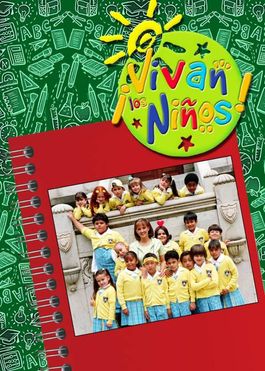
Silvia "Bibi" Gaytán Barragán is a Mexican singer and actress. Since she was born, she has lived in Villahermosa, Tabasco and she considers herself "Tabasqueña".
Eduardo Capetillo Vásquez is a Mexican actor and singer.

Yadhira Carrillo Villalobos is a Mexican actress, model and beauty queen.
Alcanzar una estrella II is a Mexican telenovela produced by Luis de Llano Macedo for Televisa in 1991. It is the sequel to Alcanzar una estrella.
Otto Sirgo is a Cuban actor and director of Mexican telenovelas and theater. He is the son of Cuban actor Otto Sirgo and Mexican actress Magda Haller and was married to Maleni Morales, also an actress, until her death in 2020. He starred in Recien Cazado along with Jaime Camil and Gabriela Vargas.

Héctor Suárez Gomís is a Mexican actor and former singer. Formerly known as Héctor Suárez Jr. and Héctor Suárez hijo, he is the son of Héctor Suárez, who was also an actor and of Pepita Gomís a television host.

Laura Aurora Flores Heras is a Mexican actress, hostess and singer.
Mariana Seoane is a Mexican actress, model and singer.
Muñecos de Papel was a fictional Mexican pop group that appeared on the 1991 telenovela, Alcanzar Una Estrella II. Its members were Sasha Sokol, at the time a former member from real life pop group Timbiriche, that also "shared" members Bibi Gaytán and Erik Rubin. The group was also formed by Ricky Martin (post-Menudo), soloist singer Pedro Fernández, soprano singer Marisa de Lille and the actress Angélica Rivera, the latter whom later became the First Lady of Mexico.

¡Vivan los niños! is a Mexican telenovela produced by Nicandro Díaz González for Televisa. It aired on Canal de las Estrellas from July 15, 2002, to March 17, 2003. It's an adaptation of the 1983 Argentinean telenovela Señorita maestra.

Lorena Rojas was a Mexican actress and singer, best known for her leading roles in popular telenovelas.

Mas Que Alcanzar una estrella (Album) is the soundtrack to the film Mas Que Alcanzar una estrella. It was released in 1992. The album includes songs by artists such as Eduardo Capetillo, Mariana Garza, and Ricky Martin, among others.
In the movie, Muñecos de Papel is formed by Ricky Martin, Bibi Gaytan, Alejandro Ibarra and Lorena Rojas. It is unclear whether they contributed vocals for "Sha La La La" and "Apertura", which are simply credited to Various (Various).
The song "Mas que alcanzar una estrella" premiered during the closing credits of the last episode of Alcanzar una estrella II, and was also included in Eduardo Capetillo's first solo album Dame una noche.
Mariana Garza's "Contra tu cuerpo" was the third opening song for Alcanzar una estrella in 1990, but the full version remain unreleased until this album.
"Dime que me quieres" had already been a hit single from Ricky Martin's debut album the previous year.

Mariana Garza Alardín, is a Mexican singer and actress.
Leonorilda Ochoa Pagaza was a Mexican actress and comedian who appeared in film since the Golden Age of Mexican cinema, television, and theatre productions. She became popular as La Pecas in the sitcom Los Beverly de Peralvillo (1968-1973).
Luis de Llano Macedo is a Mexican TV and musical producer.
"Detrás de Mi Ventana" is a Latin pop song by Mexican recording artist Yuri from her studio album Nueva Era (1993). The track was written by Guatemalan singer-songwriter Ricardo Arjona. It was released as the lead single in Latin America and the United States, peaking atop the Billboard's Latin Songs chart, becoming the third number-one song in the chart for the singer and the first for Arjona as a songwriter.

Silvia Elizabeth Banquells Pinal, known professionally as Sylvia Pasquel, is a Mexican actress.

Rita Macedo was a Mexican actress and dressmaker. She was nominated for an Ariel Award for her 1956 performance in "Ensayo de un crimen" and in 1991 for a TVyNovelas Prize for "Alcanzar una estrella". She won the Best Actress Ariel Award in 1972 for "Tú, yo, y nosotros". She was married to a pioneer of Mexican radio, television and film, Luis de Llano Palmer, by whom she had two children, Julissa, an actress and musician, and Luis de Llano Macedo, renowned telenovela producer. She also was instrumental in bringing many works of international writers to the Mexican stage.
Canción de amor is a Mexican telenovela directed by Alfredo Gurrola and produced by Luis de Llano Macedo for Televisa in 1996. It premiered on Canal de las Estrellas on Monday, May 13, 1996, and ended on Friday, September 13, 1996.
Una luz en el camino is a Mexican children's telenovela produced by Mapat L. de Zatarain for Televisa in 1998. It is an adaptation of the 1991–1992 Argentinian children's telenovela El árbol azul.











